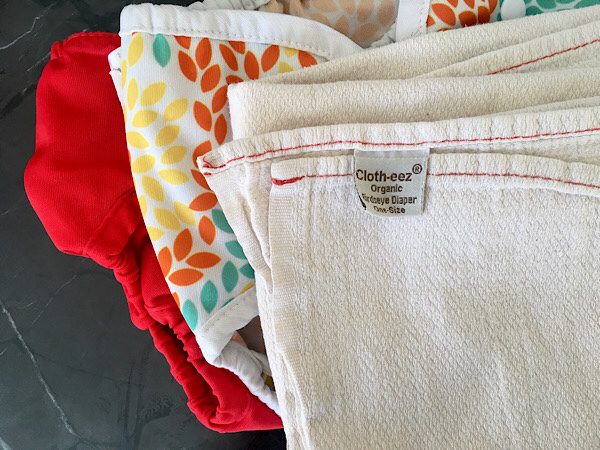This post may contain affiliate links. As an affiliate, I make a commission on qualifying purchases at no extra cost to you. See Disclaimer for more details.
Oh Toddlerhood how I love thee, let me count the ways…
Toddlerhood has been a weird and educational time period for me as a mother.
Although my toddler is in many ways still more of a baby than an adult, the fact that she can talk makes my brain subconsciously assume she is much older or more developed/capable than she really is.
While I believe that young children should be treated as persons, spoken to “like adults” and given a fair amount of responsibility, sometimes they just need to be treated like the young children they are, and that is a good thing, and developmentally appropriate.
Oftentimes, this means meeting them halfway.
When my little one makes her will known to me and asserts her stubborn independence, I see her “adult” self shine through. Occasionally, I forget that she is so young, and I am quick to meet her misbehavior with harsh words or tough consequences.
But when I take a moment to pause and remember who I am dealing with here—a 3 year old who recently was in my womb and even more recently learned to speak—then I am much more likely to meet her undesirable behavior with calmness and patience.
That is the number one thing motherhood has been teaching me lately: to check myself. More often than not, I am the source of my own problems.
I’m discovering that motherhood isn’t so much a way to learn about your children as it is a way to learn about yourself.
(I’ve written about that, before.)

And with that, I’d like to share with you 5 additional tips that I have learned from the few years of toddler experience I have.
These really work for me, they are tried and true, and I use them often. Maybe they will inspire you too.
I’m no doctor or child psychologist, but sometimes parenting advice is best straight from the source. 😉
Here we go:

1. Slow Down, Lady!
Often times when I am in a flurry of motion, (whether it be cleaning, cooking, or tending the baby WHILE cleaning AND cooking 😉 ) I ask my toddler to pitch in and it goes something like this:
Me: calls toddler: “Will you pick up these shoes?… Come pick up these shoes!… I want you to come put these shoes away!…Are you LISTENING?”
Toddler: “What mom?”
I’m guilty of this a LOT.
I talk way too fast, and don’t give my child enough time to even process that I’m speaking to her, let alone process what it is I am asking her to do, or how she will proceed to do it.
When I am busy, I work QUICK, all the wires in my brain are buzzing, and I can fly through my list.
But my toddler can’t.
She is small, and she hasn’t developed the amount of multitasking or planning skills that allow me to accomplish everything I have to balance in a day.
In addition, her brain is still learning, and it takes a minute to process what is going on around her. Mine has so much practice I can respond almost instantly.
I need to give her more time to respond. And when I do, she usually obeys or assists with little resistance.
I have found that counting to 10 in my head after asking a question or giving an instruction is an easy way to remind myself to allow her a few seconds to THINK and respond.
You would think this was just common sense, but apparently this mama doesn’t have that skill built in. 😂
The key here though is to NOT count out loud, which may lead the toddler to assume you are timing or threatening them, which is obviously not the goal.
Give your toddler some time to think, process, and respond. This is respectful, and also what you expect someone to do for you.

2. Play With Their Imagination.
Teaching my child to obey for the sake of wanting to obey is one of my parenting goals. But sometimes, I make it REALLY hard for my child to want to obey, because lets face it:
- Chores are boring
- They would rather play
- They are feeling disconnected from me
One super easy way to remedy this is to appeal to their imagination, by working WITH their wild imagination instead of against it.
I like to do this by surprising my toddler with magical requests (that are actually just ‘boring’ requests in disguise.)
Here are some ideas:
- Call your child by a character name they have been pretending as lately
Me: “Nemo, come swim over here and put your bowl in the sink please!”
(I usually will add something to make it seem like I am also playing this game such as “Thanks Nemo! I am Dory!” That’s usually enough to ensure a giggle and a helpful response.)
Here’s another one I do often:
Me: “Baby cat! Do you want to help mommy cat make dinner!”
To which she responds something like: “ohhhhh! because the baby cats are so hungry?”
You can also:
- Call the object in question something magical or surprising.
Similar to the examples above, instead of calling your child a new name, call the object in question a new name.
For example, when my daughter left out the playing cards last night, I asked her to come “Pick up her crackers and put them back in the cracker box.” (I pointed at them so she knew what I was talking about.)
She thought it was so funny she said “THE CRACKERS??!” with a smile and then cleaned them up happily! Because she thought it was a game!
In my experience, children learn through playfulness. I’ve even heard it said that a child’s work IS play. Use this to your advantage, it really works for my family!
“…think of play as the work your child needs to do to build her brain and grow up healthy.”
Peaceful parent, happy kids–dr. Laura Markham

3. Check if Your Request is Reasonable & Necessary
Kids are inundated with commands from their parents. Sometimes I’m afraid I’ve asked my toddler so many things, she might not know which items take priority.
Additionally, my kids are not here to be my personal phone-fetcher, door-closer, or will-you-take-this-to-the-trash-please-er.
When they are willing to kindly do me a favor, I appreciate it. But when they are unwilling, I need to remember that it is NOT necessary for them to comply with every unnecessary command, rather, I need to respect that they have their own wills too.
Sometimes I just need to let it go, and sometimes I just need to do it myself.
When I ask my kids to do too many things, they may lose the ability to differentiate between my requests and my instructions. (The former being ‘favors’ the latter being ‘commands’.)
So in practice this concept may play out like this:
Me: “Will you take this wrapper to the garbage please?”
Toddler: “I don’t want to.”
Me: “Alright, it’s my wrapper, I will take it there myself. Love you.”
Or:
Me: “Put this blanket in the closet please.”
Toddler: “Mot right now” (not a typo 🙂 )
Me: “Okay, I see that you’re busy playing, I would be happy to do it for you,”
I have heard some people refer to this idea as “picking your battles”, and some parents may be nervous that it allows for inconsistency and breeched limits.
However, I like to see it as teaching my child that mom can self-correct, mom respects my will too, and that mom is willing to do me a favor.
(Of course, I am always doing my children ‘favors’, but they don’t always interpret them as such. This provides them with a clear example that I am on their side, hopefully they will remember it and return the favor soon!)
A key I try to keep in mind is this: is what I am asking my toddler something that I need her to do because I actually need help or am trying to teach her? Or is it something that I am asking that is unnecessary or unreasonable?
Why do I make unreasonable requests in the first place? It may be prudent to self reflect on why you make a request that turned out to have been unreasonable or unnecessary.
Here are some possibilities:
- Something that seemed important to you didn’t seem important to the child
- You were being a little lazy 🙂
- You like to do things your way, and your toddler likes their own method
- You were asking just to assert dominance or control over a situation
(this is a common one for me when I am feeling stressed. I tend to ask my toddler to do something simply because I want to feel in control. She can sense this, and tends to refuse. Makes sense.)
If I want to foster the desire to obey in my children, I cannot expect them to desire to obey unreasonable requests.
I think nurturing your child’s ability to weed out ‘poor’ instructions will benefit them and their critical thinking in the long run.

Related Post: 6 Ways To Make Up With Your Toddler After a Hard Day
4. Give Your Toddler Some Choices
As I have discussed, toddlers are stubborn and willful creatures. Just like adults are.
They want to have self efficacy, and self control. Those are two wonderful gifts we can help give our children by just giving them a few choices of their own to make, for themselves.
Often when I am met with resistance from my 3 year old, I rephrase my question or command by stating my need then offering choices, and that makes all the difference.
This concept, again, gives your child respect, dignity, and acknowledges personhood.
The key for this to work is to never give an option that you cannot live with. Only offer choices that work for you, because you have to be okay with them picking either one!
For example:
Me: “It is almost time for bedtime. Would you like to stay up for 5 more minutes, or get ready for bed now.” (Of course I already know what she will say!)
Toddler: “Stay up a few minutes.”
Me: “Alright. After that it’s time for bed.”
Another: (I tend to use this one after an argument has already begun.)
Me: “It is time to be done watching videos on the phone. Would you like to hand the phone to me nicely, or would you like me to take it from you nicely?”
She usually hands it to me herself, and I think that although she wishes she could watch more videos, she is glad to maintain some control of the situation.
Here is one more:
Me: “I need to work on the computer. Would you like me to work, and then after I can play with you, or play with you first, and then allow me to work for XX minutes?”
Sometimes my toddler surprises me and wants some independent play time, and I am happy to let her have it! Otherwise, I play with her first and she knows that both of our needs were met.
There are times when I do NOT offer options.
Lunch time is sometimes an example of this. Sometimes I am unwilling to provide an option, and my child needs to learn that I wont make two different lunches.
Also, sometimes in moments of high stress when tears are already flowing, too many options can overwhelm my child, and I just need to take control and tell her what will happen next. I think this signals to her that although she is crying and things seem out of control to her, someone (me) is in charge and knows what to do. It helps us quickly move on from the problem.

5. Explain Yourself
I bet almost everyone remembers being told at some point in their childhood the phrase: “because I said so.” That is a valid phrase in many situations.
But there are times when explaining to my toddler why I need what I ask allows her to become my partner, rather than my ‘servant’ (sometimes I’m sure she feels this way. I would say I feel like her servant sometimes too, ha!)
I don’t always tell my toddler my reasoning for everything, and sometimes she wouldn’t entirely understand it anyways, but at the very least I like to tell her that mommy needs her help.
Children, like everyone else, need to be needed. I think when my child realizes how much I rely on her and appreciate her assistance, she is more willing to work with me. It also teaches her that obedience to righteous requests brings happiness.

For example I might say:
Me: “I am changing the babies diaper, but I accidentally forgot the wipes! I really need some help, will you please run and grab them for me?”
She usually observes this situation and realizes that mommy actually DOES need HER help! She loves to be the superhero and save the day!
Another very common example at our house is this:
Toddler: “Can I have some more icecream/cookies/candy?”
Me: “No, you already had one. Icecream is SO yummy, but it is not good for your body. We should only eat a little bit at a time. Maybe you can have some more tomorrow.”
My toddler then usually says something like:
Toddler: “OOHHHHH, Its not good for you, you get sick? But its SO yummy.”
I love this conversation, because later my toddler REMEMBERS that I took the time to explain this concept to her, and she will repeat it to me later on, without prompting:
Toddler: “I am eating lots of carrots! Carrots are good for you, I like carrots.”
score!
Here is a final example that happened this afternoon. I promised I would take the kids outside to play in the snow. When we got outside, it was much colder than we were expecting.
Me: “It is very cold outside. I don’t want the baby to get too cold, we will have to make it short today. Let’s go play for a few minutes, then we need to go inside.”
We played very briefly, then I told her it was time to go inside. She initially resisted, she really wanted to stay. I repeated my explanation, then also allowed her a choice:
Me: “It is too cold outside, all our noses are getting red. I don’t want us to get sick! We can try again tomorrow. Would you like to climb the mountain one more time?”
She chose to climb it one more time, then we all went inside with no fuss.
I think that offering your child an explanation when you can is a considerate thing to do. It also helps them realize that you aren’t just throwing out commands because you are a tyrant.
When my child understands why I am asking what I am asking, it makes sense to her to want to obey.
A note before I go…
I am learning each day that being able to respond to my child in positive ways, rather than react, is vital to our relationship.
We obviously don’t always have smooth conversations like the examples I have provided, which is why these tips were ‘invented’ in the first place!
I tried these things out of necessity! But I am happy to report that these 5 tips are truly things that have helped me to communicate with my little one, and have made parenting just a little bit easier for me.
Each child is different, maybe yours wont respond to these tips the way mine has. That’s okay.
The important thing is to remember that motherhood and toddlerhood are not two states of life that are at odds with each other, but that their two languages just have to find the right means of communication.
Keep experimenting and finding what works for you.
These tips are successful for me, if you try them out, let me know how it went in the comments below!
You may also like these posts:
– Why Affirmations are VITAL for Mothers & How to Write Them
– When You’re Feeling Disconnected to Your Child (A Letter to Myself & Other Busy Moms)



